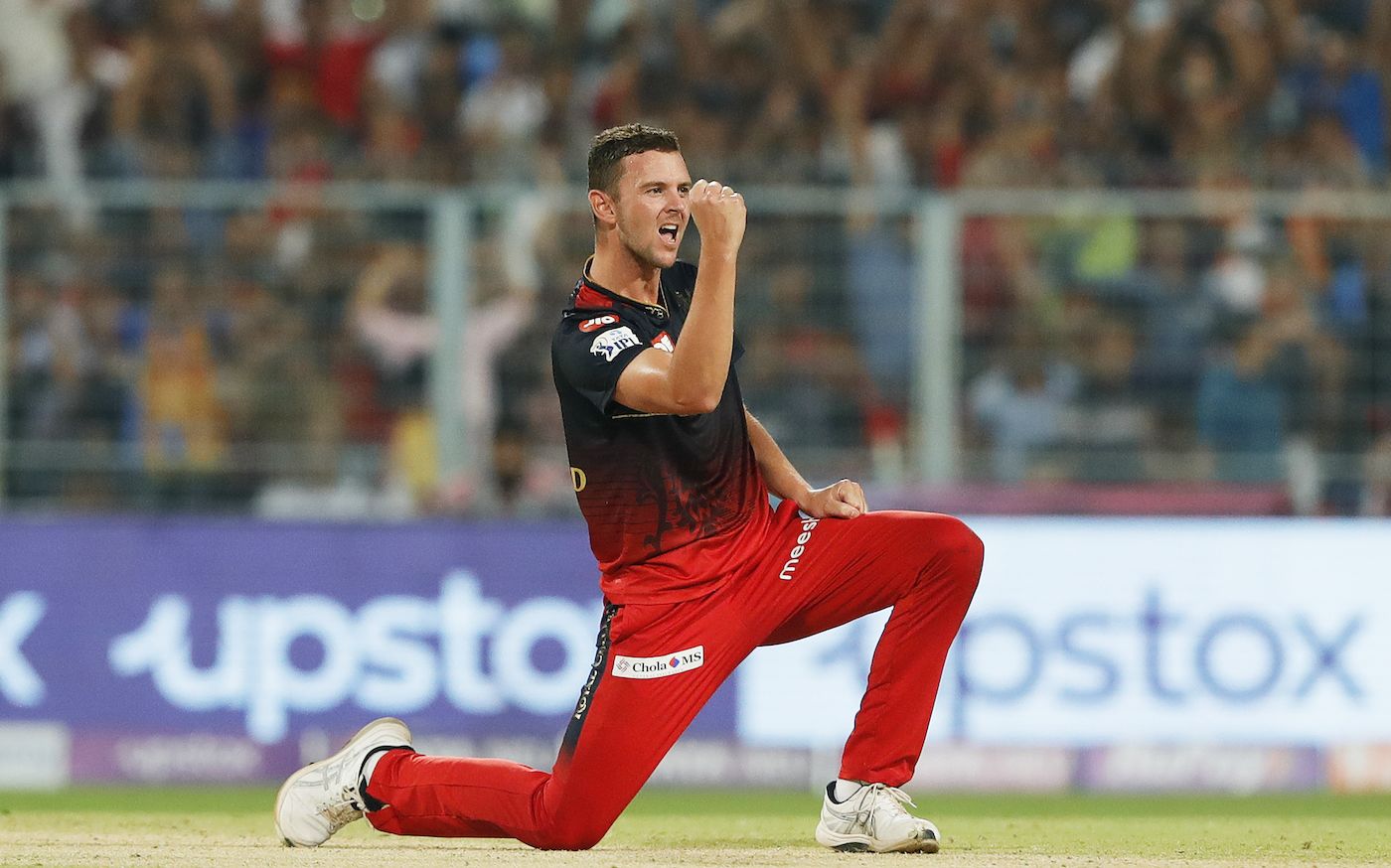Yet, that is how things are playing out for one of Australia’s premier quick bowlers, where Hazlewood is a key part of the T20I team that will start the trip, but barring injury, he appears likely to again be sidelined for the Tests as he was in Pakistan earlier this year when he was left out after the opening match.
If it does transpire that way over the next six weeks, it would mean that Hazlewood will have played just two of Australia’s last 10 Tests after sustaining a side injury in the opening match of the Ashes in Brisbane.
“I was fine with it. Obviously, the conditions dictate the bowling line-up in the subcontinent and after playing on that first wicket [in Rawalpindi], I was pretty happy to sit on the sideline for the next two,” Hazlewood joked. “It was quite hard work for everyone. We are lucky to have Cam Green there to cover a lot of bases and you need airspeed on those sorts of wickets to have an impact. I’m happy to play my role there.”
It remains to be seen what is produced for the two Tests this time, which will both be played in Galle. Hazlewood floated the notion of Australia going to just one frontline quick (which would have to be Test captain Pat Cummins) although that still remains an unlikely prospect with Marnus Labuschagne instead entrusted with a greater role with the ball than he had in Pakistan.
“We’ve got to see what we get dished up,” he said. “Galle can reverse swing…so it came into play, there was the abrasive surface. Think Sri Lanka only bowled two overs of quicks for the whole game [it was five] so that tells you what wicket we might get.”
While Hazlewood’s Test career has been stalled somewhat by forces outside of his control, his T20 cricket has gone to new heights having benefited from a sustained run in the format both for Australia and in the IPL.
In all T20 cricket since June 2021, he is the third-leading wicket-taker among quick bowlers with 62 scalps at 17.91 in 39 matches with an economy of 7.49. For Australia, the numbers are even more eye-catching: 31 wickets at 14.22 in 18 matches with an economy of 6.61.
Nearly two-thirds of his T20 matches (49 of 79) have come since 2020 when, either side of the pandemic emerging, he returned for Sydney Sixers and helped them to the BBL title then picked up a deal with Chennai Super Kings in the IPL.
“I could see a couple of World Cups coming up in T20 cricket and wanted to poke my nose back in at the IPL, so I jumped in for the Sixers,” Hazlewood recalled. “[It was] probably that period where I made a conscious effort to get back into T20. It was so hard before that with logistical [issues], tours were overlapping, and you had to pick and choose what you wanted to play for Australia. Took that opportunity to play the Big Bash and that led to playing for Chennai and I ended up playing more and more games as time went on…then here we are.
“It’s a strange one, I guess. I’ve obviously missed a fair bit of red-ball cricket through injury and selection so, a little bit disappointing in that regard. Then the white-ball, T20 in particular, has gone strength to strength. That’s the benefit of having three formats in this sport. If you are struggling in one, or not going particularly well, then you can rely on another one to come through.”
The main decision Australia need to make ahead of the series-opener on Tuesday is the balance of their attack. It appears likely they will stick with the seven-batter formula, meaning it’s whether there is a third frontline quick to support Hazlewood and Mitchell Starc or if they team up Ashton Agar and Mitchell Swepson as a pair of specialist spinners.
Andrew McGlashan is a deputy editor at ESPNcricinfo
